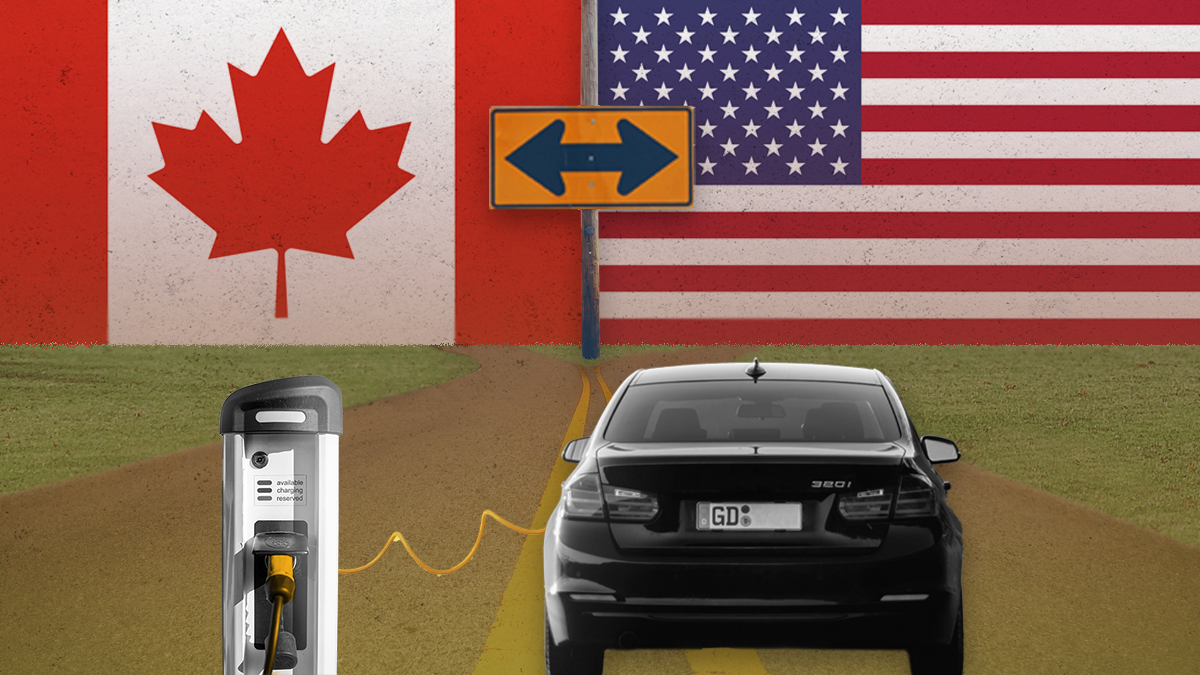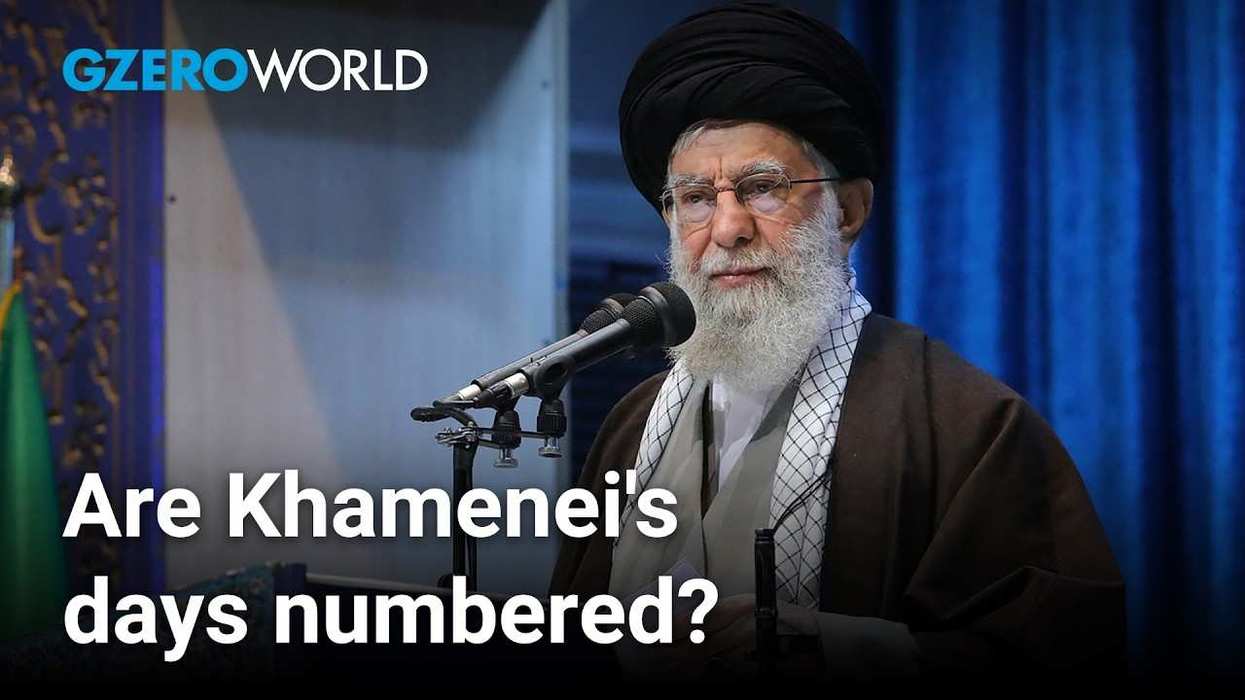International automaker Stellantis recently ordered workers to down tools at a CA$5-billion EV battery plant it is building in Windsor, Ontario, across the river from Detroit – an unwelcome surprise for PM Justin Trudeau and Ontario Premier Doug Ford.
To resume construction, Stellantis has made it clear it wants bigger subsidies than the CA$1 billion the politicians previously promised. In turn, Trudeau and Ford have been blaming one another and showing signs of distress as they scramble to come up with the cash.
Stellantis can afford to play hardball. After all, if Trudeau fails to deliver, the automotive manufacturing giant could hop across the river and set up shop in Michigan, where President Joe Biden’s Inflation Reduction Act promises a generous manufacturing subsidy pegged to production.
Flavio Volpe, president of Canada’s Automotive Parts Manufacturers' Association, thinks the standoff will end with a deal before long because Stellantis needs to get the plant running if it wants to meet its production targets. Also, the perspiring Canadian politicians can’t afford to send an unwelcoming message to other companies they are courting, let alone the voters of Windsor.
“Both sides of this negotiation know they have to end up where they originally started, which is making batteries in Windsor for electric vehicles in Windsor and Brampton,” says Volpe. “It makes it real difficult to try to grind out that last dollar from each other.”
Paying for jobs
Ontario has lots of things that EV manufacturers want: market proximity, plentiful low-carbon electricity, relatively easy immigration for skilled workers, and policy alignment on China and the desirability of working together across the border.
But the scale of the $370-billion Inflation Reduction Act, with its open-ended subsidies for EV manufacturers, has sector leaders driving hard bargains, and not just in Canada. Tata Motors, for example, is demanding 500 million pounds ($620 million) to build a plant in Britain.
Big players, like the US, Europe, and Japan, with massive borrowing power and large domestic markets, have enough leverage to establish EV industrial policy.
“For smaller markets with smaller budgets and less of a consumer market incentive in the US, there are less structured subsidies,” says Oliver Montique, Eurasia Group analyst, Industrials & Supply Chains. “So it's kind of a case-by-case basis.”
The scale of Canadian investments is eye-popping. Canada has agreed to pay VW up to CA$13 billion for a battery plant in St. Thomas, Ontario, that could employ 3,000 people, for example, and reportedly up to CA$19 billion to Stellantis, for 2,500 jobs.
“I don't know if it's been, let's say, really, forcefully evaluated from a cost perspective in terms of per job, but it's more a case of let's get them on shore, and then we'll deal with the rest later,” says Montique.
But Canada has little choice. If taxpayers don’t pony up, the industry will just move to the United States, says Graeme Thompson, senior analyst with Eurasia Group’s Global Macro-Geopolitics.
“If you don't meet or equal what the US is doing, then you risk not just that first investment, but all of the potential spinoffs down the road, which we can't possibly quantify with any accuracy, but you know must also be there. So you're really between a rock and a hard place.”
Pressure on the Canadians
That puts intense pressure on Trudeau’s ministers to make the deals.
“There are no days off on that one,” says Volpe.
Biden talked a good game about cooperation with Canada in Ottawa in March, but he has placed a huge bet on the IRA’s massive subsidies to revitalize American manufacturing. If it works, he might just get reelected next year. A new plant in Michigan might help with that. A new plant in Windsor? Not so much.
“There's a lot of supply chain integration in cars, for example, but at the end, it's not a symmetrical relationship on trade,” says Robert Asselin, senior vice president for policy at the Business Council of Canada. “They want their own stuff built in the US. That's what they want.”
Critical minerals, eventually
Asselin, a former policy and budget director in Trudeau’s government, says one thing his former colleagues can do to encourage EV manufacturing in Canada is speed up the approval process for mining critical minerals that manufacturers need to produce EV batteries. Canada has lots of lithium underground, for example, but little in production. Industry wants quicker approvals.
“At some point, investors will say, ‘Well, look, I'm not going to wait 15 years for someone to send me a letter to say you can do this. I'm going to move somewhere else,’” Asselin explains.
Biden has promised to support a bill from Senator Joe Manchin that would shorten American environmental approval processes to two years. The Europeans have a similar plan. Trudeau has promised reform but has taken no action. And it may not be easy. Mines require federal and provincial approval, and Indigenous land rights are constitutionally protected.
Canada’s environmental approvals are among the slowest in the world in part because Trudeau campaigned on improving protections. His brand, especially in Quebec, could be jeopardized if he steamrolls ahead with mines over objections from environmentalists and Indigenous communities. And demand for critical minerals is expected to be strong whenever Canadians get around to digging them up. The lithium isn’t going anywhere.
Trudeau’s Conservative opponent, Pierre Poilievre, whose support is concentrated in resource-producing western provinces, is promising to remove the “gatekeepers” standing in the way of projects. But if Trudeau makes mining too easy, he risks alienating his own supporters by taking steps that will help people who will never vote for him.
So long as Trudeau is prime minister, he’s more likely to just keep cutting checks.



















